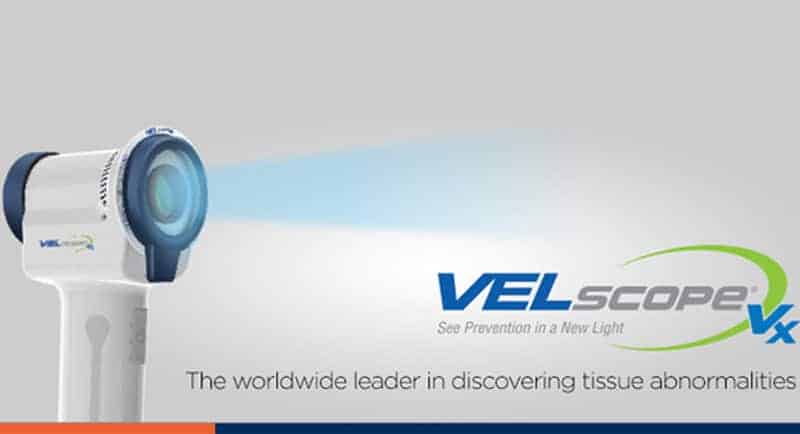Oral Cancer Screening Near You
With hundreds of thousands of cases of oral and throat cancer being diagnosed each year, there is a real risk, especially for individuals who do not undergo any screenings. When it comes to battling these cancers, early detection can play a large part in survival rates. With early diagnosis and treatment, a patient’s survival rate increases dramatically.

Common Risk Factors for Oral Cancer
- Factors that may increase your risk for oral cancer include:
- Genetic predispositions
- Excessive sun exposure
- Excessive alcohol consumption
- Frequent use of tobacco
Oral cancer can affect people of all ages. Typically, men above the age of 50 are at the highest risk, but recently, there has been an increase in women with oral cancer.
VELscope Screenings
Utilizing VELscope in Yaletown, your doctor can view the tissue inside of your mouth to determine if any abnormal tissue exists. Abnormal tissue does not always correlate with cancer, so your doctor may schedule follow-up tests to determine if the abnormal tissue is cancerous.
FAQ's
What is an oral cancer screening?
Taking a look at your mouth, tongue, lips, gums, throat, and neck for patches, lumps, or sores is called oral cancer screening and is an easy part of an examination performed by a physician or dentist.
Who should get screened for oral cancer?
Regular screening is indicated for people with risk factors, including tobacco use, heavy alcohol consumption, a previous history of oral cancer, exposure to HPV, or those over the age of 40.
Even if you have no signs, your dentist might still recommend an oral cancer check.
How often should I get an oral cancer screening?
General Recommendations:
Under 40 and Low risk: Every 12–18 months (or even 2 years for younger adults)
Over 40 or High risk: Annual screening is recommended
What are the early signs of oral cancer?
-
Sores or cuts in your mouth that haven’t healed after two weeks.
-
Red or white flat spots on your tongue or inside your mouth.
-
Lumps, bumps, or areas feeling hardened in or around the mouth or neck.
-
Tingling or pain that doesn’t go away, or problems with chewing or swallowing.
Is oral cancer screening painful?
Not at all, screening is painless and noninvasive, simply a visual inspection, then a gentle feeling, called palpation, of the mouth and neck. If indicated, additional tests, which usually are quick and comfortable, with dyes or lights, may be indicated.
Where can I get an oral cancer screening near me in Yaletown?
Routine dental exams at many dental offices will perform a screening, and some specialists can do the screening. The screening is often included in the cost of a routine check-up or offered as a separate service.